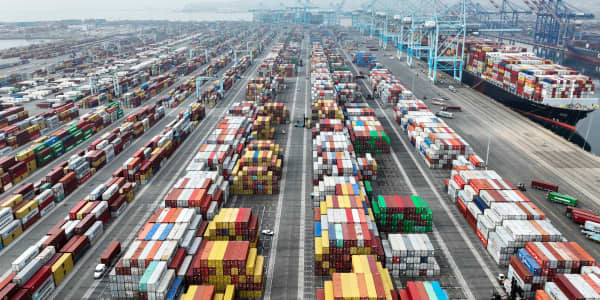Founders: Howie Liu (CEO), Andrew Ofstad, Emmett Nicholas
Launched: 2013
Headquarters: San Francisco
Funding: $1.3 billion
Valuation: $11.7 billion
Key technologies: Cloud computing, no code/low code software
Industry: Enterprise technology
Previous appearances on Disruptor 50 List: 2 (No. 46 in 2021)
The "citizen developer" trend – the idea that building software has to move beyond specialist engineering and IT roles to many desks and functions across an organization – has led VCs to invest heavily in low-code and no-code start-ups, Airtable being one of the biggest bets among them.
The company, which raised $735 million last December – more than double its previous total investment – is now being used by more than 300,000 organizations, including roughly 80% of the Fortune 100.
But co-founder and CEO Howie Liu doesn't measure the opportunity in the number of clients gained. It is about each employee. "Almost every single knowledge worker could be a customer in the future," Liu told CNBC at the time of its late 2021 mega funding deal, which valued the company at $11 billion. "We're adding more seats across almost every company out there."
Airtable's low-code tools, which in their simplest form allow any employee to create custom spreadsheets that go beyond just numbers, are being adopted for marketing, product, operations, finance and HR teams at clients including Amazon, Baker Hughes, SAP, IBM, Twilio, LVMH, Netflix, Nike, Red Bull, RH, and Under Armour.
It's already hit nine figures in revenue, according to Liu, and is growing enterprise revenue at 100%. And that revenue base is helping itself. The start-up's net-dollar retention – the total recurring revenue from existing customers – is greater than 130% as "more and more departments and teams within every company" have more workers using the software, he said.
The company is also now going global, expanding to the Europe, Middle East, and Africa region with the opening of its first international headquarters in London on Feb. 1.
Gartner estimates the size of the low-code market at roughly $14 billion, and expects growth to continue, with as much as 70% of new applications developed by enterprises relying on low-code or no-code technologies by 2025. In 2020, that figure was less than 25%. And these enterprise sales won't be made by traditional techies: by year-end 2025, about 50% of all new low-code clients will come from business buyers outside IT, according to Gartner.
The low-code space has grown so quickly it is also getting crowded, with competitors including Asana, Smartsheet and Monday.com, among many others, offering a variety of similar services. And the pressure is coming from top-down as well, with Microsoft, Google and Amazon also investing heavily in their proprietary low-code offerings as they intensely compete for cloud clients across a full suite of software services.
Liu is undaunted.
"It is a huge, huge category, ripe for the taking," he told CNBC. "We can own the biggest chunk of this enterprise opportunity. … We'll go public once we've shown we can dominate this category."
Sign up for our weekly, original newsletter that goes beyond the annual Disruptor 50 list, offering a closer look at list-making companies and their innovative founders.






















































